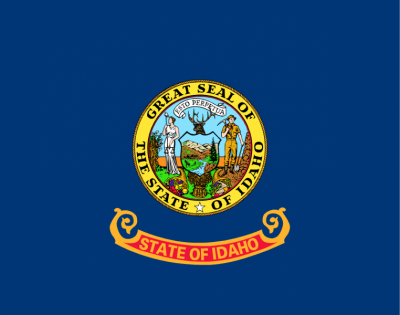Idaho

Idaho has not recognized a right of publicity either by statute or at common law. The state does recognize a right to privacy, including the tort of appropriation of name or likeness, but to date no published case has applied that tort.
Statute
NO
Revenge Porn: Idaho does have a law to combat revenge porn or “video voyeurism.” The law makes it a felony to to disseminate (whether for profit or not) images of a person’s “intimate areas” without consent when it is known or reasonably should have been known that the images were to remain private. Idaho Code § 18-6609
Drone Law: Idaho also has a law that limits the use of drones to capture the images of people (or conduct surviellance) in the absence of a warrant or consent. The provision provides a civil cause of action and statutory damages in the amount of $1,000. Idaho Code § 21-213
Common Law - Right of Publicity
NO
Common Law - Right of Privacy-Appropriation Tort
YES
Hoskins v. Howard, 971 P.2d 1135 (Idaho 1998)
Peterson v. Idaho First Nat’L Bank, 367 P.2d 284 (Idaho 1961).
Post-Mortem Right
No court to date has considered the issue. Of possible interest is Idaho’s probate code that allows heirs to continue to use a decedent’s email and social media accounts. Idaho Code § 15-3-715 (28)
Limits on Right
Does the law protect persona?
Thus far, Idaho courts have only referred to the use of name or likeness as a basis for establishing the appropriation tort.
Is Liability Limited to Uses on Commercial Advertising or Commercial Speech?
Under Idaho common law, the tort of invasion of privacy by appropriation extends to any appropriation to defendant’s own advantage. Hoskins v. Howard, 971 P.2d 1135 at 1140.
First Amendment Analysis
Under the common law tort for invasion of privacy, Idaho courts have recognized First Amendment protections, particularly for newsworthiness and matters of public interest.
Uranga v. Federated Publications, Inc., 67 P.3d 29 (Idaho 2003)
Taylor v. K. T. V. B., Inc., 525 P.2d 984 (Idaho 1974)
Idaho sits in the Federal Court of Appeals for the Ninth Circuit which has had occasion to consider the interaction between the First Amendment and the right of publicity under California law. The Ninth Circuit has adopted a variety of tests for assessing the application of a First Amendment defense in such instances, including California’s transformativeness test, and a broader balancing approach.
In re NCAA Student-Athlete Litigation, 724 F.3d 1268 (9th Cir. 2013)
Hoffman v. Capital Cities/ABC, Inc., 255 F.3d 1180 (9th Cir. 2001)
